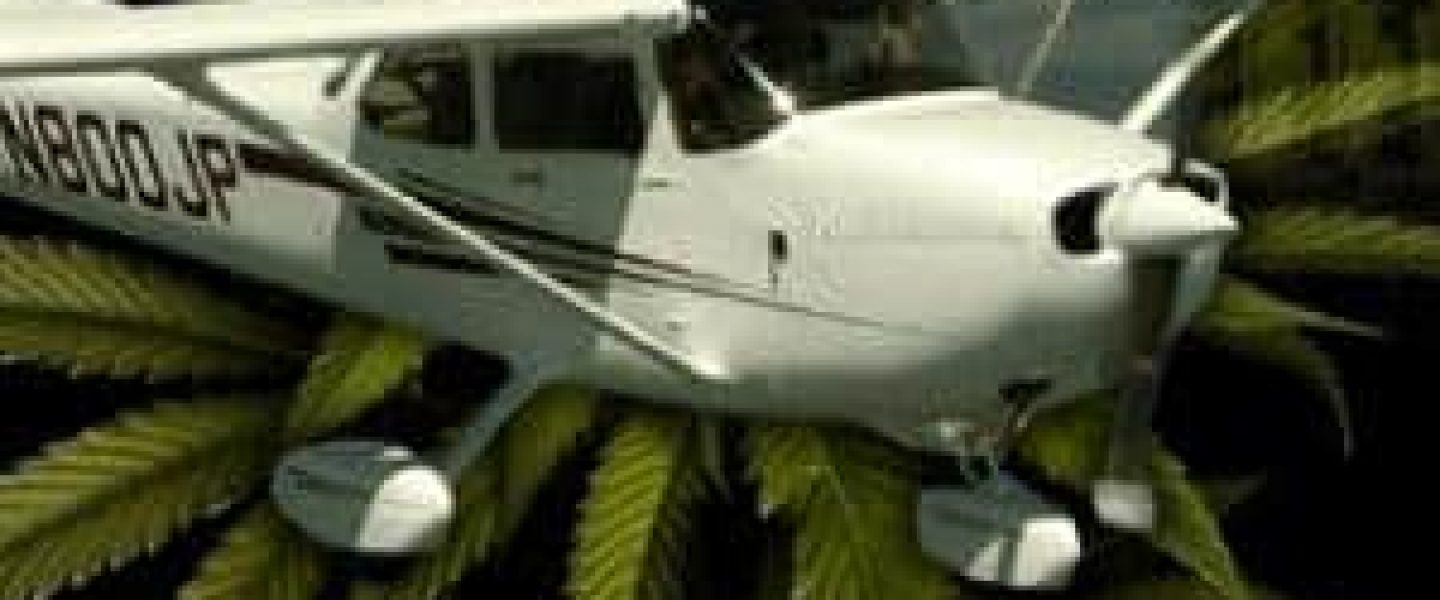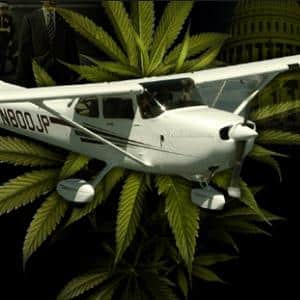Private plane pilots, especially those traveling to or through states with relaxed marijuana laws, are being subjected to warrantless searches by state and federal law enforcement, the Toledo Blade reported Monday.
The newspaper reported that the Aircraft Owners and Pilots Association, which represents small plane owners and operators across the country, said it had received dozens of complaints from members “subjected to random searches” by Customs officers, local police, or both.
“None of the stops resulted in anything being found,” said Steve Hedges, a spokesman for the owners and pilots association. “In most cases, the pilots were stopped and held while their planes were searched… I’m told one pilot was asleep in a motel room with his wife when agents kicked the door down and took them back out to the airport to search his plane, only to find nothing there.”
Hedges said the pilots’ group has filed Freedom of Information Act requests for documentation justifying the searches, but didn’t expect to get a response for months.
The Blade also cited a June blog entry by the editor of Flying magazine, Robert Goyer, where Goyer described email and phone conversations with an unnamed “law enforcement source… who is knowledgeable about aviation matters” who described his 2009 training to participate in a federal drug interdiction program targeting private pilots. That source said he was taught pilots were to be treated as though they had no right to refuse a search.
“What they taught law enforcement officers and agents was that all aircraft can be detained since they fall under the… authority of the FAA [Federal Aviation Administration],” Goyer quoted the source. “This, in effect, gives them complete search authority of any aircraft.”
Goyer described the training as an “aviation drug interdiction” class sponsored by a High Intensity Drug Trafficking Area (HIDTA) office. The training was conducted by two agents, one from Homeland Security and one from Customs and Border Patrol, the source said.
As part of the program, “suspicious” planes would be tracked and followed by a Homeland Security aircraft, and once the plane landed, the pilots would be approached often at gunpoint and usually by local law enforcement and detained until federal agents arrive on the scene. Then they are ramp checked for compliance with Federal Aviation Authority (FAA) regulations and the planes searched.
“Our source told us that the ramp check was just a ploy to search the airplane and that the real target of the search was drugs, though even that, he said, could be used as a pretense for apprehending other potential criminals,” Goyer noted.
The federal agents teaching the class he attended did not specify what other kind of “target” they might find, the source said, adding that instructors warned that the success rate for such searches was likely to be low, but that they could yield a “big bite” when successful.
A Customs official told the Blade that its job included “ensuring that all persons and cargo enter the US legally and safely through official ports of entry, preventing the illegal entry into the US of persons and contraband at and between POEs [points of entry], ensuring the safe and efficient flow of commerce into the United States, and enforcing trade and tariff laws and regulations,” but did not explain how stopping and searching planes that had not left the US fit with that mission.
The Blade also cited a letter from acting Customs and Border Protection commissioner Thomas Winkowski saying that the agency has the authority “to inspect a pilot’s operating certificate and related aircraft documents” on the basis of federal code governing the licensing of pilots and registration of aircraft.”
“In the course of conducting a pilot certificate inspection, facts may arise meriting further investigation or search to the extent authorized under the Constitution and consistent with federal law,” Winkowski wrote. “Each interaction and event must be evaluated independently based on the facts present at the time of the encounter.” Such searches could include a “limited search” of the pilot if there is “reasonable suspicion” the person is armed and dangerous; a “protective sweep based on reasonable suspicion that a person is hidden who intends to impede or harm the law enforcement officer,” or a search of the vehicle “based on probable cause that contraband or evidence is onboard the aircraft.”
But the plane owners and pilots’ association said that all 42 of the pilots who have reported such searches denied there was any probable cause or reasonable suspicion to search their planes. None had crossed a US border during its flight.
One pilot cited by the Blade said he had flown a plane from Concord, California, to Boonville, Missouri — both within the United States — and when he landed to refuel in Pueblo, Colorado, four unmarked vehicles surrounded his plane. Local police told him they had received a call from the Border Patrol saying he was “under suspicion of transporting large amounts of marijuana.”
The only thing that could have remotely suggested the flight might be involved with drugs, the pilot said, was that it originated in California. “They think people are flying pot out of California,” Mr. Brodsky said. “They’re casting a wide net and hoping to catch something — and trampling people’s civil rights in the process.”
Another pilot, who had twice been searched at airports, said police in both encounters mentioned they thought the plane “had been involved in drug trafficking.” It wasn’t, and the pilot said he was tired of it. He said he would “comply, be courteous” with police requests, but would not consent to any searches.
“At that point, I’ll get legal counsel if they do,” he said.”I don’t think there’s any reason why a US citizen should be searched, or asked to search, unless they law enforcement have a warrant or probable cause,” he said.
“When they got all this Homeland Security money, well, there are only so many terrorists out there to fight,” the first pilot said, so it was predictable that it “would be turned on our own citizens.”
Article From StoptheDrugWar.org - Creative Commons Licensing - Donate









